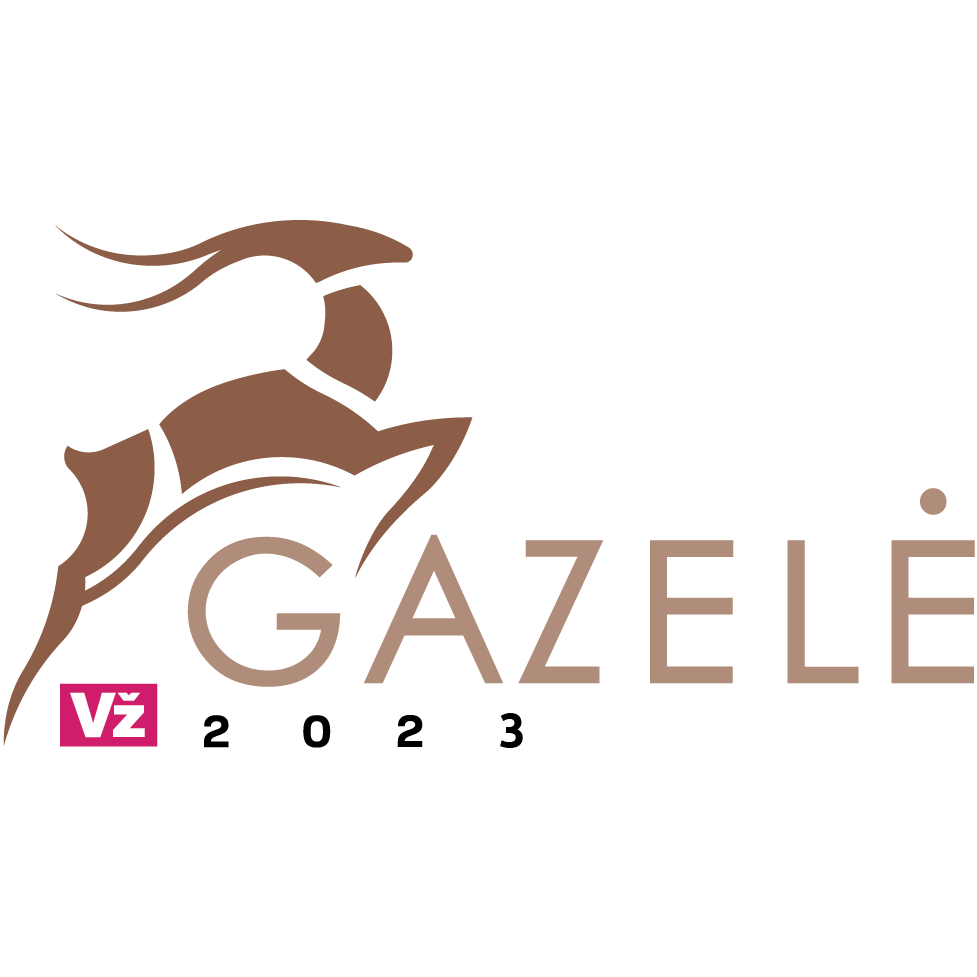Important to know
| Corporate income tax | 22% |
| VAT | 25% |
| Employment tax | Progressive |
| Income tax for foreign workers | 25% |
| Employer’s social security contribution | 14.1% |
| Compulsory accumulation of supplementary pension | 2% of wage |
VAT rate is 25%.
Companies must register for VAT in Norway when the turnover from sales of goods or services exceeds NOK50, 000.
The application for inclusion in the VAT register shall be submitted via the e-declaration system Altinn. The VAT return is submitted and the VAT tax is paid every two months.
If your company is not established and has not carried out activities in Norway, but the goods or services purchased from Norway were intended for the purpose of carrying out your company’s activities in Lithuania or in another country, and if Norwegian VAT at 25% has been charged on the invoices, you are entitled to a refund of the VAT you paid in Norway. For example, if the invoice for conference attendance or hotel services in Norway was invoiced with Norwegian VAT at 25 %, this VAT can be recovered.
The deadline for submitting a VAT refund application for the previous calendar year is 30 September.
NUF is the Norwegian branch of a foreign company.
This registration form is the most suitable for Lithuanian companies wishing to start operations in Norway.
Advantages compared to other forms of legal entity:
- No share capital is required to register a NUF
- The address of registration of the branch can be in Lithuania
- The management of the branch is carried out from Lithuania, so there is no obligation to have an office in Norway
- There is no need to employ and pay salary to a manager
- Employees who work in Norway may be seconded from Lithuania
- Personal income tax, social security contributions and corporation tax can be paid in Lithuania in certain cases.
Important!
For branches of foreign companies (NUF), full bookkeeping in accordance with Norwegian accounting and tax legislation is mandatory.
Lithuanian companies are required to register NUF with the Norwegian Centre of Registers and obtain a Norwegian organisation number before they can start operating in Norway.
It usually takes four (4) weeks to set up an NUF branch in Norway.
Registering a company or business in Norway
All entities that carry out business activities must have a Norwegian organisation number. The same applies to companies that have employees working only in Norway.
A Norwegian organisation number is assigned after registration with the Register Centre Brønnøysundregistrene.
The foreign company is responsible for the activities in Norway. If the foreign company is a sole proprietorship, it will also be considered a sole proprietorship in Norway.
Registering customer contracts in Norway
Foreign companies are required to provide information on the contracts they have concluded with clients and to declare their employees working on each project.
This does not apply if the company’s client is a private individual. In this case, the employees must be registered in the NAV register of employees by submitting an A-melding declaration.
Registering for VAT in Norway
A company must register for VAT in Norway when the turnover from sales of goods or services exceeds NOK50, 000.
The application for inclusion in the VAT register is submitted via the e-declaration system Altinn.
A company is mandatorily subject to an audit when:
- Its operating revenue reaches NOK 7 million
- Its value of the balance sheet assets exceeds NOK 27 million.
- The average number of employees is greater than 10 full-time equivalents
The employment contract must specify factors relevant to the employment relationship, including:
the identity of the parties, the place of work, the job description or the employee’s duties, the start date, the hours of work and the duration of breaks, and information about collective agreements governing the employment relationship.
The Norwegian Labour Code sets out minimum requirements working conditions:
- Wage – if a minimum wage is agreed, it must not be lower than that laid down in the collective agreement of the industry sector.
- Overtime pay – between 40% and 100% depending on the nature of the overtime
- Probationary period – up to six (6) months.
- Duration of annual leave – four (4) weeks and one (1) day.
- Payment for annual leave – at least 10.2% of annual salary.
- Notice periods – from 1 to 6 months depending on the age and seniority of the employee.
There is no general statutory minimum wage in Norway, except in nine industrial sectors:
- Construction industry
- Shipbuilding industry
- Agriculture industry
- Fishing industry
- Cleaning services industry
- Electrical works industry
- Road transport services industry
- Bus passenger transport services industry
- Hospitality and catering industry
The purpose of setting minimum wages in sectoral collective agreements is to protect foreign workers from worse working conditions and to ensure that they are properly remunerated. Collective agreements also set out requirements for other working conditions, such as overtime pay, shift or night work, length of annual leave etc.
- With vocational training – NOK230/hour.
- Without vocational training but at least one year of experience – NOK216/hour.
- Without vocational training and experience in the construction industry – NOK207.40/hour.
A company wishing to carry out temporary employment activities and hire workers in Norway must register with the Norwegian Labour Inspection Authority’s Register of Temporary Employment Agencies. Each year the company must submit a report confirming that it meets the requirements for the hiring out of workers, and the registration is thus renewed. If the company fails to submit its report by the deadline, the recruitment agency is removed from the register and loses the right to carry out labour leasing.
The new rules came into force on 1 April 2023, significantly tightening the rules on hiring workers from temporary employment agencies when there is a temporary need for labour (i.e. seasonal workers). The changes relate to the Labour Code provision that workers must be employed on a permanent basis.
Circumstances under which workers may be hired from recruitment agencies:
- Temporary replacement of permanent staff during holidays, sick leave and similar situations.
- By agreement with the representatives of the trade union, if the company is bound by a collective agreement with a trade union of a certain size.
As of 1 April 2023, a ban on hiring workers through recruitment agencies in Oslo, Viken and the former Vestfold region by companies in the construction sector or working in connection with it has come into force.
From 1 July 2013, the hiring authority and the hiring company will be jointly and severally liable for the payment of wages, annual leave pay and other benefits arising from the principle of equal treatment.
Joint and several liability applies to suppliers and subcontractors in the contract chain in industries covered by general industry collective agreements. Joint and several liability means that the client is liable for the non-performance of the contractor. Joint and several liability covers debts for wages, income tax withholding and employer’s social security contributions in cases where contractors fail to meet their obligations to employees and the public budget. The Employer should therefore take steps to ensure that contractors comply with their obligations to both employees and the authorities.
The contractor may apply to the relevant public authority for a waiver of joint and several liability by submitting a request and the necessary documents signed by both parties to the contract. Applications shall be made for each contractor’s contract.
Foreign nationals from outside the EU/EEA who intend to work in Norway must have a residence permit.
To employ someone who wants to move to Norway
To apply for a residence and work permit, the company must make a specific job offer to the employee by filling in the UDI employment offer form of the Service Centre for Foreign Workers. The employer can apply on behalf of the worker if the application is for a residence permit for skilled workers and seasonal workers.
To employ a person who already lives in Norway
The employer must check whether the foreign worker has a valid residence permit in Norway by asking to see the residence permit card or by contacting the UDI office.
Persons who have come to Norway as migrant workers for skilled work and have a residence permit with an employer in Norway can change employer without applying for a new residence permit. However, they must work in the same skilled job as before and under the same conditions as those for which the permit was issued.
Individuals who have come to Norway as labour migrants, usually must have a residence permit with a specific employer. In this case, this will be indicated on the residence permit card e.g. “kitchen worker at X guesthouse”. If the worker wants to change employer, they must apply for a new work permit with the new employer.
Employers who hire foreign workers without the right type of residence permit can be fined or even imprisoned.
In some cases, a residence permit is not required if the worker is seconded to Norway for a certain period of time and the employment relationship meets the criteria.
Contact us to discuss the possibilities of posting Ukrainians to Norway in more detail!
A worker who only intends to work but not to immigrate to Norway is given a D-number. This is for a foreign worker who does not have a Norwegian identity number (ID number). The D number is used to communicate with the Norwegian authorities, to apply for a tax deduction card, and is presented to the employer so that the employer can declare to the authorities the employee’s income and taxes.
All foreign workers who intend to work in Norway are required to undergo an identity check (“ID check”) by the Norwegian tax authorities. ID checks are carried out every five (5) years.
The ID check is required to obtain a tax card, from which the employer deducts a set amount of tax from the wages. No tax card will be issued without an ID check. Without a tax card, 50% of the tax will be deducted from your salary.
The employee must register in advance online with the Norwegian Tax Administration for the time of arrival for the ID check. At the time of the ID check, employees must present their:
- Identity document
- Employment contract or any other document to evidence that the employee does have an employment offer
- A completed Tax Card Application Form RF-1209 “Application for a Tax Card for Foreign Nationals”
- Residence permit where required.
OTP is a compulsory supplementary pension scheme for employees. In addition to the national social security contributions, the employer pays at least 2% of the individual’s pre-tax salary each month into a supplementary pension fund for the benefit of the employee. At retirement age, the employee will be entitled to a supplementary payment from a private pension company.
Do you have any questions on a topic of interest to you? Get in touch to discuss!





